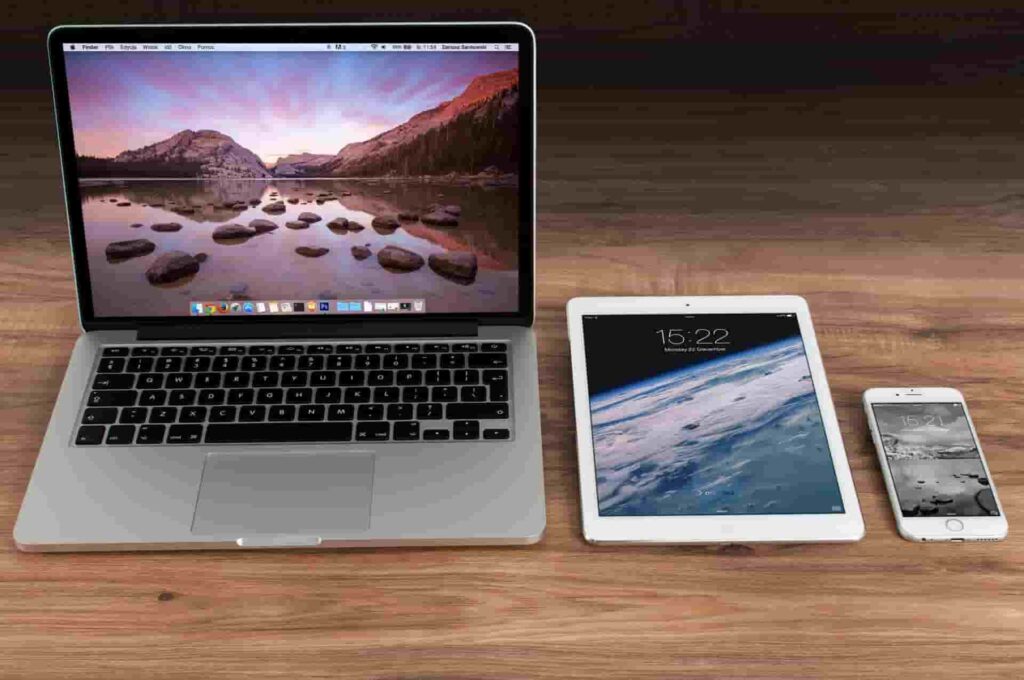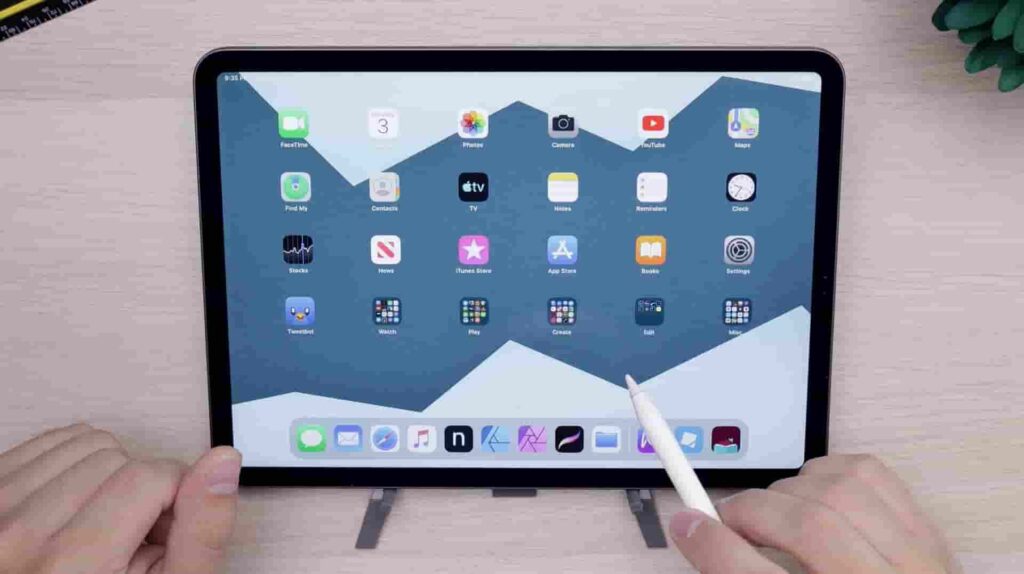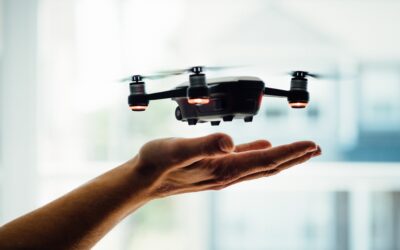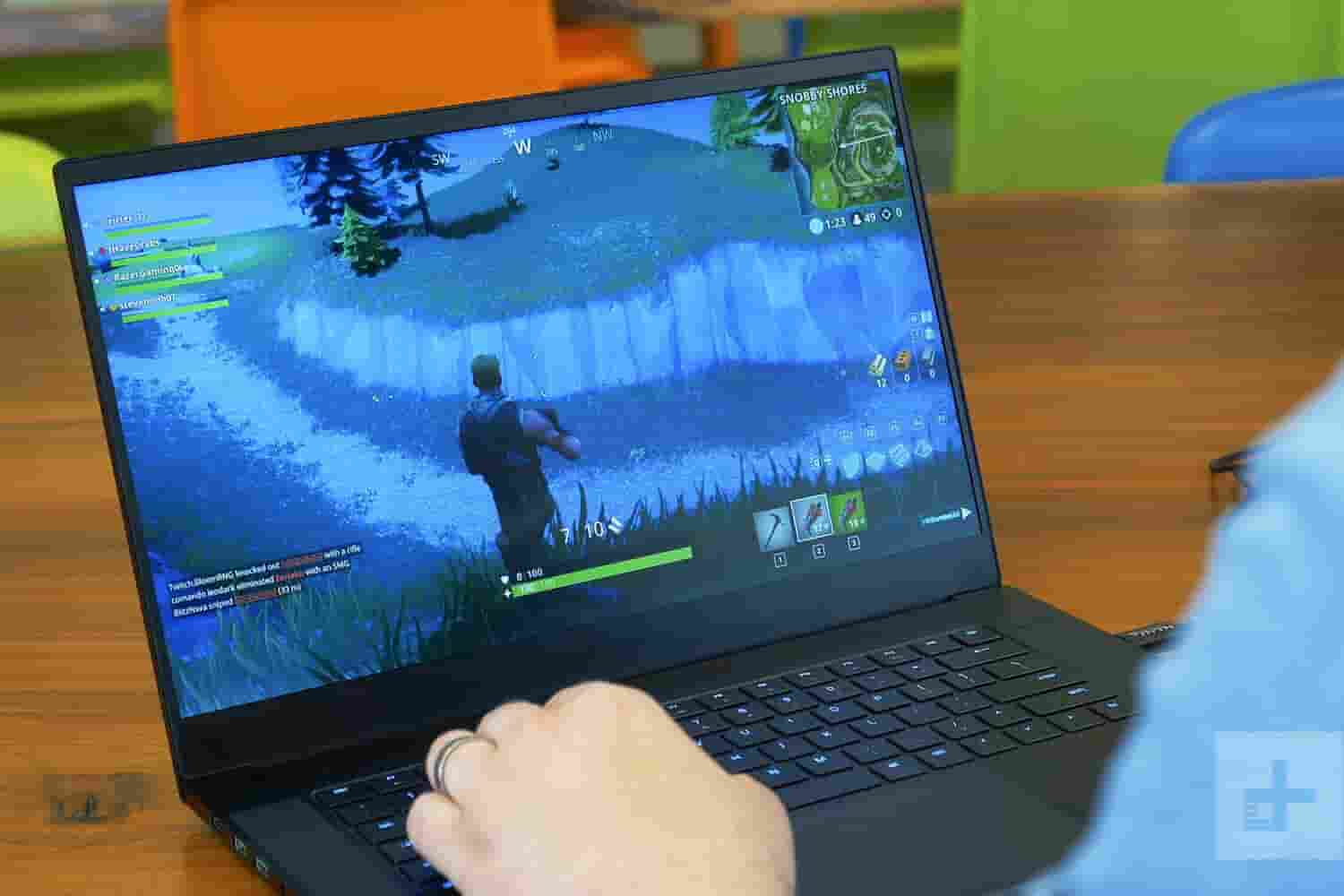It may seem a straightforward question with an obvious answer. But it’s a tough question because of the receding boundary between a computer and other ‘computer-like’ devices. Modern gadgets can do so many things like a computer. Therefore, many of us are not sure about the exact definition of a PC even though we use the term every day.
What is a PC? In today’s tech-savvy world, we often hear the terms “PC” and “laptop” used interchangeably. But are they really the same thing? What exactly defines a personal computer, and how do laptops fit into the equation? Let’s embark on a journey to unravel the mysteries of personal computing and understand the nuances that distinguish these devices.
Table of Contents
What is a PC?
PC means personal computer. The term PC was coined by Ed Roberts when he introduced the MITS Altair 8800 in the 70s. Later, the word PC was popularized by IBM (International Business Machine Corporation). The first personal computer produced by IBM in 1981 was called the IBM PC. Later, many other companies started making computers by following the IBM technology. Those computers were also known as IBM PCs or IBM Compatibles. The term ‘IBM PC’ fell out of use because of varied manufacturers and diversified modern PCs.
A PC is essentially a computer that is designed for use by one person at a time. A computer is an electronic device that stores and processes data based on the instructions provided by a software or hardware program. Personal computers are made for general users. You can use a PC to browse the web, type documents, send an email, and play games. You can also use it to edit and create a presentation, spreadsheets, and videos.
Some people also use the term PC based on the operating system of a computer. There are two most influential OS in the market — Microsoft OS and Mac OS. If a computer runs on a Microsoft operating system, people call it a PC. Many people think a Mac is different from a Windows PC. The truth is, there isn’t much of a difference between Windows OS and Mac OS. Both are operating systems for personal computers. And, only operating systems don’t determine if a device is a pc or not. Then, what are the criteria for calling a device a PC?
What Makes a PC, a PC?
First of all, a personal computer is meant to be used by one person at a time. So, there is no confusion about the word “personal.” The problem lies with the word “computer.” What is a computer? Is a laptop, a tablet, or a smartphone a computer? To resolve all the confusion about the definition of a personal computer, I have figured out some basic features that every PC has. If a device contains all these features, we can call it a PC.
- A PC has an operating system. It can be Windows OS, Mac OS, or even Android OS.
- Personal computers have a microprocessor. It is the microprocessor that allows manufacturers to put an entire CPU on one chip.
- Computers store data in their memory.
- PCs have the ability to take input and produce output.
- You can install software or apps on a personal computer.
- A personal computer is designed to be used by one person at a time.
- A PC can be any size. Size doesn’t matter. As long as it’s used by one person and has other main features of a computer, it’s a PC.
- Personal computers have multitasking capabilities. That is, it can do many tasks simultaneously and efficiently.

Unraveling the Concept of Personal Computers
Personal computers, or PCs, have been a cornerstone of our digital lives for decades. These versatile machines have transformed the way we work, learn, and communicate. But what makes a computer a “personal” one?
In essence, a personal computer is a computing device designed for individual use. It’s the digital canvas where we write, create, calculate, and connect. PCs come in various forms, including desktops, laptops, and workstations, and they share some common characteristics that define them.
The Anatomy of a Personal Computer
At the heart of every personal computer lies a complex web of hardware components. These include the Central Processing Unit (CPU), Random Access Memory (RAM), storage devices, and various input/output peripherals. Each of these components plays a crucial role in the computer’s operation.
- CPU (Central Processing Unit): This is the brain of the computer, responsible for executing instructions and performing calculations.
- RAM (Random Access Memory): RAM provides fast, temporary storage for data that the CPU is actively using.
- Storage Devices: Hard drives, Solid State Drives (SSDs), and other storage devices store your data and applications.
- Input/Output Devices: Keyboards, mice, monitors, and printers are examples of devices that allow you to interact with your PC.
Exploring Diverse PC Types
When we think of PCs, we often visualize desktop computers with their large, stationary monitors and towers. However, personal computers come in various flavors to suit different needs.
- Laptop: Laptops are portable PCs designed for on-the-go use. They pack the power of a desktop into a compact, foldable form.
- Desktop PC: These are the traditional, stationary computers commonly found in offices and homes.
- Workstation: Workstations are high-performance PCs designed for specialized tasks, such as graphic design and video editing.
- All-in-One PC: These combine the computer’s components into the monitor, creating a sleek and space-saving design.
So, where does a laptop fit into this spectrum of personal computers?
The Laptop Conundrum
Laptops are undoubtedly personal computers. They are designed for individual use and offer the same core functionalities as desktops, including web browsing, document editing, and multimedia consumption. However, laptops bring an additional dimension to personal computing – portability.
The ability to carry your computer with you wherever you go is a defining feature of laptops. Their compact size and built-in display, keyboard, and touchpad make them self-contained and highly mobile. In essence, laptops are personal computers optimized for mobility and flexibility.
A Journey Through PC Evolution
The world of personal computing has come a long way since the early days of mainframes and room-sized computers. PCs have evolved in terms of both hardware and software. From the introduction of the graphical user interface (GUI) to the era of touchscreens and voice recognition, personal computers have continually adapted to meet the changing needs of users.
The history of personal computers is marked by milestones like the invention of the microprocessor, the rise of the internet, and the proliferation of mobile computing. These advancements have transformed personal computers into powerful tools for work, education, entertainment, and communication.
The Operating System Connection
Operating systems (OS) are an integral part of personal computers. They act as the intermediary between users and hardware, facilitating the execution of programs and tasks. Popular operating systems like Windows, macOS, and Linux define the user experience on PCs.
Each OS comes with its unique features, user interface, and software ecosystem. The choice of an operating system can significantly impact how you interact with your personal computer. For instance, Windows is known for its widespread use in business environments, while macOS is favored by many creative professionals.
Personal Computers in the Digital Age
In the digital age, personal computers have become central to our lives. They are our gateways to the internet, allowing us to connect with people worldwide, access information, and engage in online activities. From online shopping to remote work and virtual classrooms, personal computers are the conduits of the digital era.
The advent of cloud computing, high-speed internet, and the Internet of Things (IoT) has further expanded the capabilities of personal computers. These devices are now interconnected, enabling seamless communication and data sharing across the digital landscape.
The Laptop Revolution
One of the most significant revolutions in personal computing has been the rise of laptops. These compact powerhouses have liberated us from the constraints of stationary desktops. Laptops have become essential tools for professionals, students, and anyone seeking the freedom to work or play from anywhere.
The mobility offered by laptops has reshaped industries, enabling remote work, distance learning, and on-the-go productivity. Whether you’re in a coffee shop, a park, or an airport lounge, a laptop can provide the computing power you need.
The Role of Personal Computers in Education
Education has also undergone a transformation, thanks to personal computers. Laptops and desktops have become indispensable tools in modern classrooms and online learning environments. They empower students to access educational resources, collaborate on projects, and engage in interactive lessons.
EdTech (Educational Technology) has flourished alongside personal computers, offering a myriad of software applications and platforms designed to enhance the learning experience. Personal computers have bridged the gap between students and a world of knowledge available at their fingertips.
Gaming PCs: Beyond the Basics
While personal computers are versatile tools for work and study, they also serve as platforms for immersive gaming experiences. Gaming PCs are a specialized category of personal computers designed to deliver high-performance graphics and processing power.
These PCs are equipped with dedicated graphics cards, gaming peripherals, and advanced cooling systems to handle the demands of modern video games. Gaming enthusiasts often invest in top-tier gaming PCs to enjoy cutting-edge graphics and smooth gameplay.
Environmental Considerations in PC Manufacturing
As personal computing has flourished, so have concerns about its environmental impact. The production and disposal of electronic devices, including PCs, raise questions about sustainability and eco-friendliness.
Green computing initiatives aim to reduce the environmental footprint of personal computers. Manufacturers are increasingly using eco-friendly materials, energy-efficient components, and recycling programs to mitigate the impact of PC production.
Future Prospects of Personal Computers
The future of personal computing holds exciting possibilities. Emerging technologies like augmented reality (AR), virtual reality (VR), and artificial intelligence (AI) are poised to reshape how we interact with our PCs. From immersive AR workspaces to AI-powered personal assistants, the potential for innovation is vast.
Additionally, the growing trend of cloud-based computing and edge computing is set to transform the way we access and process data. As personal computers continue to evolve, they will play a central role in harnessing the power of these technologies.
Challenges in Defining the PC Landscape
In the rapidly evolving world of technology, defining what constitutes a personal computer can be challenging. The lines between traditional PCs, smartphones, and tablets have blurred. The term “personal computer” now encompasses a wide range of devices, each with its unique capabilities.
This evolving landscape presents challenges in categorization and classification. What was once a straightforward distinction between PCs and non-PCs has become a nuanced endeavor, highlighting the ever-changing nature of personal computing.
FAQs (Frequently Asked Questions)
Is a Laptop a PC?
Yes, of course, why not? A laptop is a PC in every way. Is there anything that a laptop computer cannot do, but a desktop computer can? Desktop PCs and laptops are quite identical. Their hardware and software capabilities are almost the same. Modern laptops come with such high-end configurations that they can certainly beat a desktop in terms of configuration and personal usage.
Every laptop has an operating system, a microprocessor, and a memory to store data. Laptops can also take inputs, process data, and produce output. You can install every desktop software and app on a laptop. Moreover, laptops have multitasking capabilities. So, what is lacking to call it a PC? Nothing. So, a laptop is a PC. Laptops are more modern and updated personal computers.
Some people think PC refers to only a desktop computer. That’s a wrong conception. There are some solid reasons behind people’s perception that a personal computer means a desktop computer. Compared to desktop computers, laptops are a more recent invention. Before the laptop revolution and its popularity in modern life, we used desktops for our personal use and called it a PC. So, it stayed in our mind that pc means a desktop computer. However, if you look at their configuration and capabilities, there isn’t much of a difference between a desktop and a laptop.
Read More: Top 100 Cool Gadgets for Everyday Life – Smart Living at Your Fingertips
What Does a PC Do?
A personal computer can do a lot of different things. All you need is to install software or an app to make the computer do something for you. Every software does a specific job, such as – you can browse the web with a browser, you can create, type, and store documents with a word processor, you can also play audio and video with a media player. Other common uses of a computer are – sending an email, playing games, creating and editing a presentation, working on a spreadsheet, editing photos, and videos, etc.
How Does a PC Work?
It’s a complicated process. But basically, a computer takes input, stores data, processes the data, and produces output. Inputs are like instructions. It’s a way of communicating with the computer. We tell a computer what to do by providing instructions and commands.
There are many input devices like — a mouse, keyboard, scanner, or even software installed on the computer. After taking the input or instructions, the CPU (central processing unit) processes the information and produces results. Once the data is ready, it sends the data through an output device. An output device can be a monitor, speaker, printer, port, etc.
Different Types of Personal Computers
Most of us think there are only two kinds of PCs — desktop and laptop. However, PCs come in many shapes and sizes, and they perform many different functions. The most common types of PCs are desktops, laptops, tablets, smartphones, etc. In the most general sense, a calculator, scans groceries at the store, and an ATM is also a computer.
You May Also Like: Are Laptops Good for Gaming?
Is a Mac a PC?
Yes. There is not much of a difference between Mac and personal computers. A Mac and a PC use almost the same hardware. The reason behind differentiating between a Mac and a PC is their operating system. Most of the PCs run Windows OS, while Macs have only Mac OS. That’s why people think Macs and PCs are different. The truth is, you can even install Windows OS on a Mac computer.
Macs have all the qualities of a personal computer. It is used by an individual, which makes it a personal computer. Like other PCs, Macs have an OS, a processor, memory, input and output capabilities, apps and software installation programs, and multitasking capacity — every definitive feature of a PC. So, in every way, a Mac is also a PC. All Macs are PCs, but all PCs are not Macs.
Is a Tablet a Computer?

Yes, a tablet is a computer. If we look at the features that make a computer a computer, we see most of the standard features of a computer are present in every tablet. A tablet has an operating system and a processor. It can take input, store data, process information, and produce output like any other computer. Tablets are exclusively designed for use by one person at a time. They can also do many tasks simultaneously.
So, there is not much distinction between regular desktops/laptops and tablets. The main difference is the level of capacity. Tablets are usually less capable than a laptop or desktops. The process of data input is also different in a tablet. Tablets don’t have a mouse or keyboard. Instead, it has a touchpad and accepts inputs directly on its screen.
Is a Smartphone a Computer?
Yes. Why not? A smartphone has all the basic principles of a computer. Like a computer, a smartphone has an operating system, and a processor, that takes input, stores memory, processes, and produces output. You can install many apps on it. And it has multitasking capabilities too. So, what’s lacking in it to call it a computer? Maybe smartphones have limited capacity compared to modern desktop and laptop PCs. But for a small device, it has way more capabilities than the 70s and 80s computers. In fact, modern smartphones are much more powerful computers than the original PCs were. So, yes, a smartphone is also a computer.
Conclusion
So, What is a PC? I think now you are more clear about this topic. Personal computer is a versatile computing device designed for individual use. Laptops, with their portability and power, undoubtedly fall under this category. Personal computers have played a pivotal role in shaping our digital lives, enabling work, education, gaming, and connectivity in the digital age.
As we look ahead, the definition of personal computers will continue to evolve alongside technological advancements. What remains constant is their significance as tools that empower individuals to create, learn, and connect in an increasingly digital world.
Mehedi Miraz is the creative mind behind PrideGadget.com. With an insatiable passion for gadgets, he crafts captivating blog posts that mesmerize readers. His vast knowledge in technology guarantees informative and inspiring content, making him a go-to for gadget enthusiasts everywhere.






